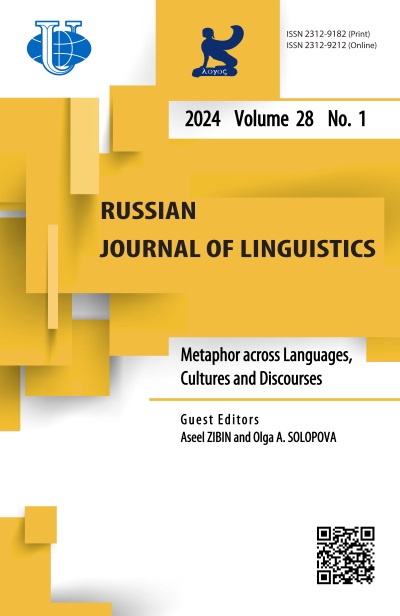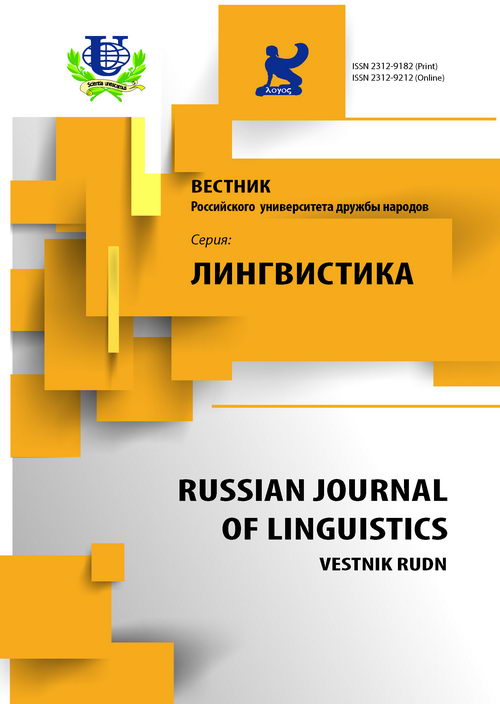Ecological Compatibility Mode in Emotional Communication
- Authors: Shakhovsky VI1
-
Affiliations:
- Volgograd State Socio-Pedagogical University
- Issue: No 1 (2015)
- Pages: 11-19
- Section: Articles
- URL: https://journals.rudn.ru/linguistics/article/view/9398
Cite item
Full Text
Abstract
Language is a city to the building of which every human being brought a stone. R. Emerson The article demonstrates the necessity for the integration of different sciences to corroborate a new scientific direction in communicology called emotive linguoecology. The author postulates the interdependence of language ecology and human ecology with individual’s emotions. The study object is ecological compatibility in communication; the subject of the research is the role of emotions in shaping ecological compatibility of utterances. The research analyses of problems in effective communication, introspection, mass media and fiction text analysis, discourse analysis of emotional situations in institutional and interpersonal communication prove that there is no direct interdependence between emotions and ecological compatibility mode; this connection is situational. The author offers new perspectives on how to shift from the theory of speech culture to the ecological communication theory.
About the authors
V I Shakhovsky
Volgograd State Socio-Pedagogical University
Email: shakhovsky2007@yandex.ru
Romance Philology Chair Institute of Foreign Languages
References
- Шаховский В.И. Категоризация эмоций в лексико-семантической системе языка. Изд. 2-е, испр. и доп. М.: Издательство ЛКИ, 2008.
- Симонов П.В. Эмоциональный мозг. М.: Наука, 1981.
- Сковородников А.П. Лингвистическая экология: проблемы становления // Филологические науки. 1996. № 2. С. 64-69.
- Сковородников А.П. О предмете эколингвистики применительно к состоянию современного русского языка // Экология языка и коммуникативная практика. 2013. № 1. С. 194-222.
- Солодовникова Н.Г., Шаховский В.И. Терапевтическая функция языка // Еcolinguistics: человек, язык и окружающая среда. 2010. URL: http://www.ecolinguistics.ru/index.php.
- Кронгауз М.А. Русский язык на грани нервного срыва. М.: Языки славянских культур, 2008.
- Эпштейн М.Н. Однословие как литературный жанр // Континент. 2000. № 104. С. 279-313.
- Эпштейн М.Н. Мат - язык тех, кто ничего не может // «Огонек». 14 декабря 2009. № 31 (5109). С. 42-44.
- Пузырёв А.В., Сафронова В.В., Маркин С.А., Гуренко И.С. Направленность хитовых песен радиостанций «Европа+», «Русское Радио» и «Love Радио» в 2009-2011 гг. // Язык и мышление: Психологические и лингвистические аспекты: Материалы XII Международной научной конференции (Ульяновск, 16-19 мая 2012 г.) / Отв. ред. А.В. Пузырёв. М.: Ин-т языкознания РАН; Ульяновск: Ульяновский гос. ун-т, 2012. С. 168-176.
- Сиротинина О.Б. Основные критерии хорошей речи // Хорошая речь / под ред. М.А. Кормилициной, О.Б. Сиротининой. 3-е изд. М.: Книжный дом «ЛИБРОКОМ», 2009. С. 16-29.

















